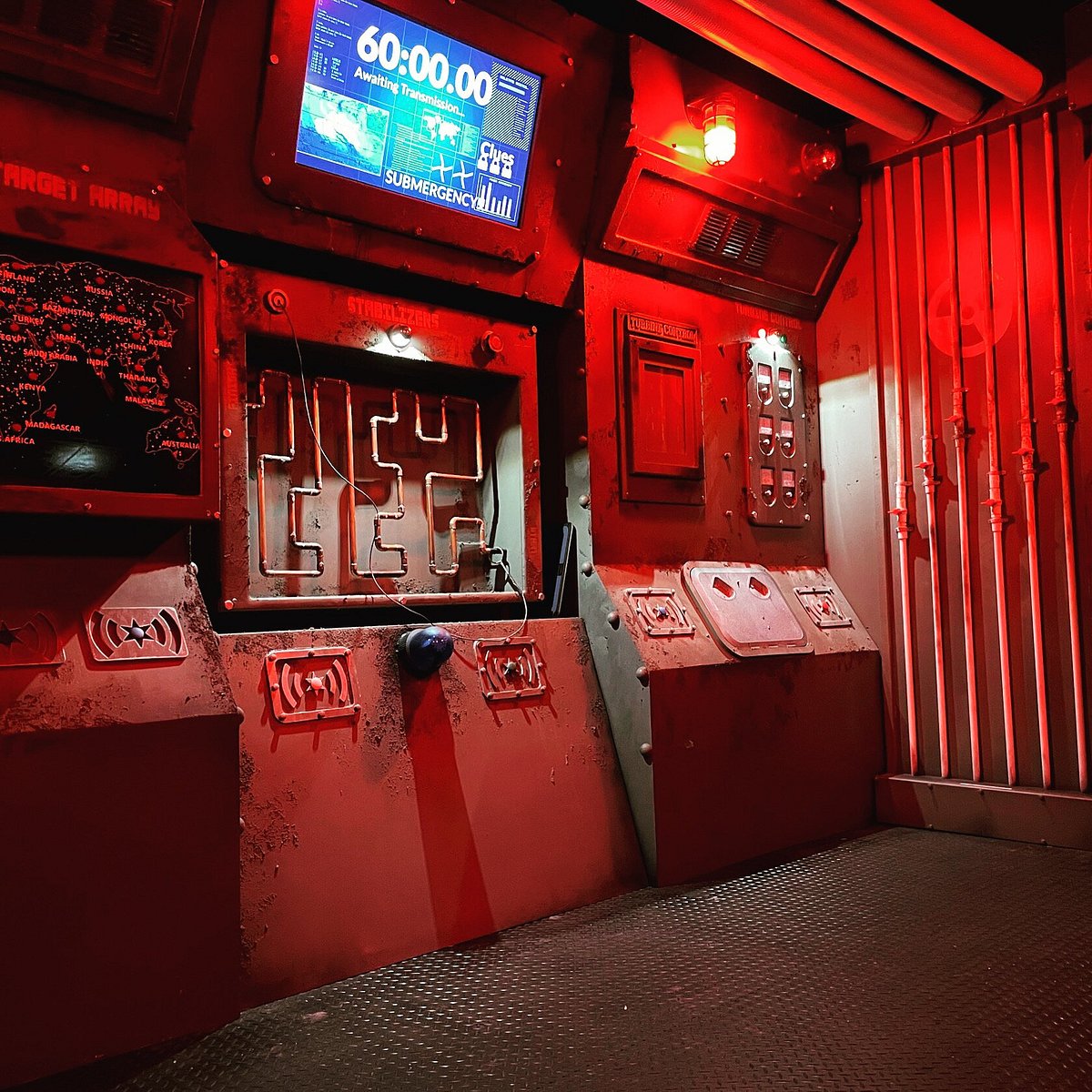Best Escape Room-- Test Your Skills and Solve the Mystery
Best Escape Room-- Test Your Skills and Solve the Mystery
Blog Article
Team Strategies: Just How to Team up Successfully in a Retreat Area
Teams should proactively listen to each member's understandings, designate roles that line up with individual strengths, and keep regular check-ins to make sure emphasis and avoid redundancy. By cultivating an atmosphere that values cohesion and flexibility, teams can significantly increase their effectiveness and success prices.
Establish Clear Communication

To help with clear interaction, it is important to mark a central factor of call for details dissemination. This duty includes summarizing findings and recommended techniques to make sure every person remains on the very same page. Additionally, adopting a methodical approach to conversations can protect against chaotic exchanges. Quick, concentrated updates from each group member can maintain the team notified without overwhelming them with info - best escape room.
Designate Duties Purposefully
While clear interaction sets the structure for efficient teamwork, appointing functions strategically guarantees that each group member's toughness are utilized effectively. In an escape space scenario, the time-sensitive and intricate nature of difficulties demands a well-organized strategy to task delegation. By recognizing and leveraging private expertises, teams can maximize their analytical capacities and enhance total performance.
First, examine the unique abilities and attributes of each participant. Somebody with an eager eye for information might stand out in locating covert items, while a sensible thinker could be much better matched to resolving challenges. It's just as important to have a leader who can look after progress, manage the timeline, and make crucial calls when required. This function frequently calls for solid business and social abilities.
Second, make certain that roles are flexible and adaptable. As new difficulties arise, the team should be able to pivot, reallocating jobs as called for. This flexibility helps maintain energy and protects against traffic jams that can take place as a result of rigid role projects.
Ultimately, a tactical approach to role assignment not just takes full advantage of the toughness of each employee but likewise promotes a natural environment, driving the group in the direction of an effective getaway.
Make Use Of Diverse Abilities
Identifying and using the diverse abilities within your team can considerably elevate your efficiency in a getaway area. Each employee brings one-of-a-kind toughness to the table, and successfully leveraging these capabilities can speed up analytic and enhance total performance. For instance, a staff member with strong analytical skills could excel at decoding complex codes or patterns, while another with keen empirical capabilities may rapidly detect concealed clues that could overlook.
Effective interaction is crucial to making use of these varied abilities. Motivate staff member to voice their understandings and concepts without delay, making sure that all prospective services are considered. This comprehensive approach cultivates a dynamic setting where creative thinking and vital reasoning can prosper. Furthermore, designating jobs that straighten with each member's toughness can avoid traffic jams and make sure that more progression is constant.
Moreover, variety in skills usually translates to variety in believing designs, which is invaluable in a retreat space setup. While some obstacles might require rational reasoning and precision, others might gain from creative and association of ideas. By recognizing and leveraging this variety, groups can address a wider variety of obstacles much more efficiently, thereby increasing their chances of an effective retreat.
Manage Time Efficiently

Determine noticeable puzzles and see this here divide tasks based on team members' toughness, guaranteeing that nobody is still. This practice can assist maintain the team focused and prevent time from slipping away unnoticed.
In addition, avoid passage vision. If a challenge is taking also long, rotate employee or go on to an additional difficulty, returning later on with fresh point of views. Interaction is paramount-- maintain every person upgraded on solved problems and continuing to be tasks to stay clear of redundant efforts.
Lastly, utilize any hints or ideas moderately but strategically - best escape room. Understanding when to ask for aid can save beneficial time. By sticking to these time monitoring concepts, teams can dramatically boost their opportunities of an effective and pleasurable retreat space experience
Debrief and Show
Reflection is an essential element of team advancement and improvement in the context of escape areas. When the challenge is finished, whether effectively or not, it is critical for the group to engage in an organized debriefing session. This procedure permits staff member to assess their performance, identify toughness, and pinpoint areas for enhancement.
Begin the debrief by reviewing what went well. Highlight particular instances of effective communication, analytical, and cooperation. Identifying these positive actions strengthens them and urges their repetition in future challenges.
Following, deal with the challenges experienced. Review minutes of confusion, miscommunication, or inadequate techniques. Motivate an open and positive discussion where team members can share their point of views without concern of criticism. This cultivates a culture of continuous enhancement and knowing.
Conclusion
Finally, successful collaboration in a getaway area is based upon clear communication, calculated function tasks, the reliable use of diverse skills, and competent time administration. Normal check-ins and organized debriefings are crucial for keeping emphasis and fostering constant enhancement. By developing a cohesive and adaptive team setting, the likelihood of effectively resolving problems and like this accomplishing the objective of getting away the space is significantly boosted. This technique not just ensures success but also promotes cumulative growth and discovering.
Report this page